Imagine being able to step in and help someone during a medical emergency, whether it’s stopping excessive bleeding, administering CPR, or simply staying calm and acting confidently while awaiting professional help. That’s the power of first aid. It’s not just about knowing what to do; it’s about making a real difference when it’s needed most.
With that in mind, this article will explain ‘What is first aid?’, from understanding the basics, to learning how to get certified. If you’re new to first aid and feeling a little overwhelmed, don’t worry! By the end of this post, you’ll realise just how accessible and empowering it can be. Plus, we’ll walk you through how to get involved with our first aid at work courses in Milton Keynes.
What Is First Aid? Everything You Need to Know
Feeling unsure about first aid? You’re not alone. It can seem daunting, but with the right guidance, anyone can build their confidence and skills in handling emergencies. Here’s what you can expect from this guide:
- What Is First Aid?
- What Are The Key First Aid Principles?
- What Can First Aid Treat?
- How To Get A First Aid Certificate
- What Does First Aid Training Include?
- How Long Does First Aid Training Last?
- How Long Does A First Aid Certificate Last?
- First Aid FAQs
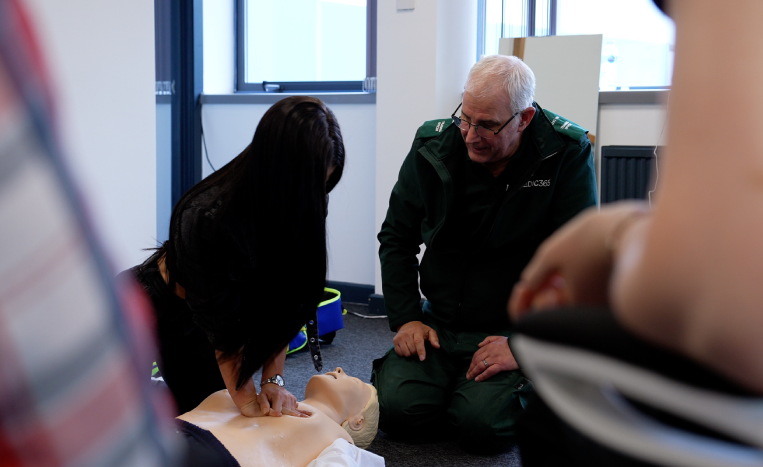
What Is First Aid?
First aid is the immediate care given to someone who’s injured or suddenly ill before professional medical help arrives. It can range from simple tasks like cleaning a minor scratch to lifesaving interventions such as CPR or using a defibrillator.
Why Is First Aid Important?
First aid saves lives. It can prevent conditions from worsening and even speed up recovery. Swift first aid intervention can be the difference between life and death in many emergencies, such as cardiac arrests or severe bleeding. According to data from the British Red Cross, a staggering 59% of deaths from injury may have been prevented if first aid was given before the emergency medical services arrived.
Additionally, first aid was only attempted in around half of all medical emergencies, despite someone being at the scene before emergency medical services in 96% of cases. These figures highlight a lack of understanding and confidence when it comes to first aid, and we’re on a mission to change that at Medic 365.
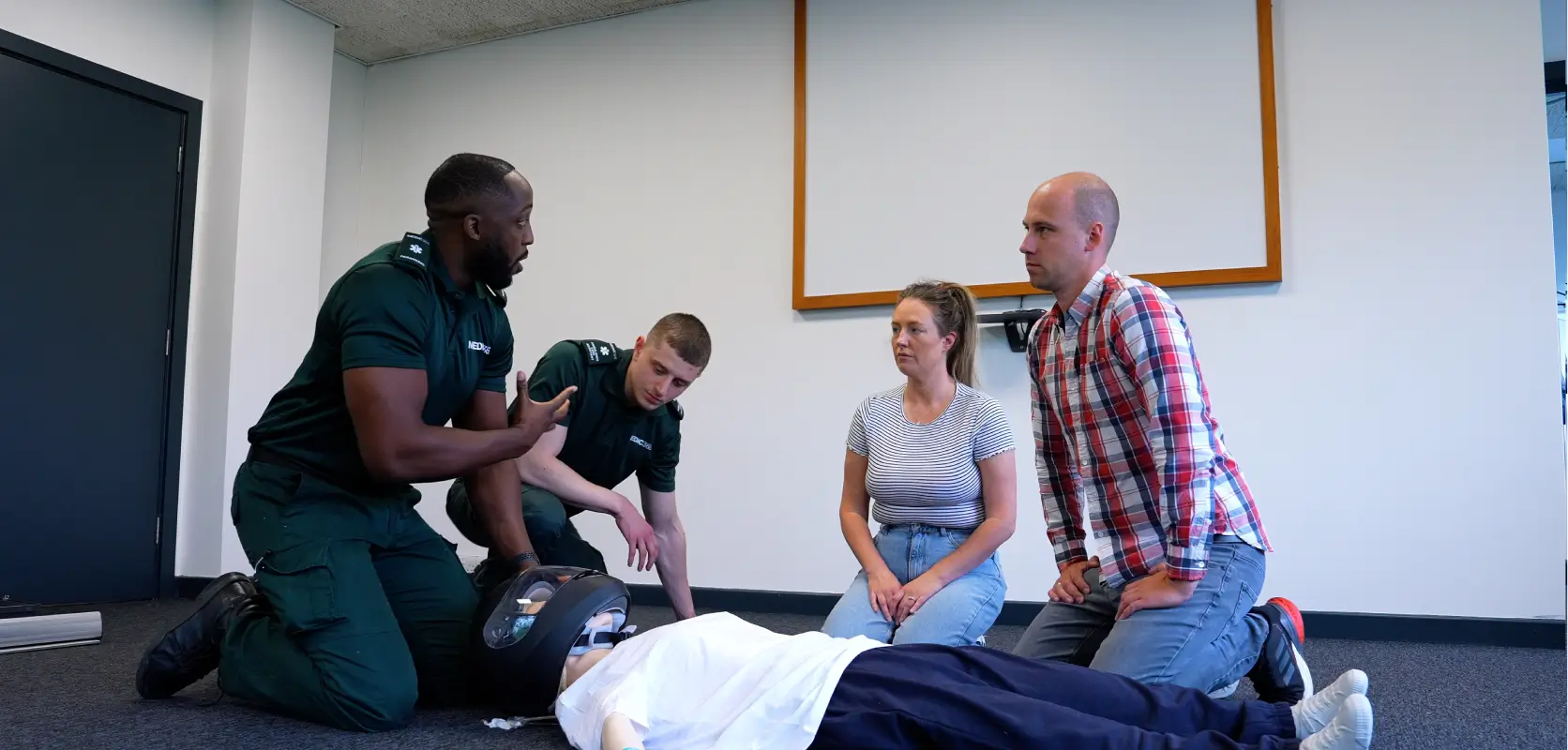
What Are The Key First Aid Principles?
Understanding the fundamental principles of first aid is crucial to providing effective assistance during emergencies. Here are the key principles every responder should follow:
- Stay calm: Try to remain composed. Take deep breaths and evaluate the situation before reacting too quickly. Prioritise your actions and remember that you can only do your best.
- Get help: Call for emergency medical support right away. Seconds or minutes can make all the difference, so either make the call yourself or get someone else to do so.
- Don’t endanger yourself: Make sure that in helping another person, you’re not putting yourself in harm’s way. You can’t help anyone if you, too, need saving.
- Limit movement: Try not to move people with injuries, as you might make the situation worse. The only exception is when not moving them would risk further harm.
- Remain present: Even if your first aid understanding is limited, try to keep the injured person as comfortable as possible until professional help arrives. Once support is there, you’ll be able to provide them with a helpful report of what has happened.
By keeping these principles in mind, anyone can make a significant difference in an emergency, even without extensive medical training.
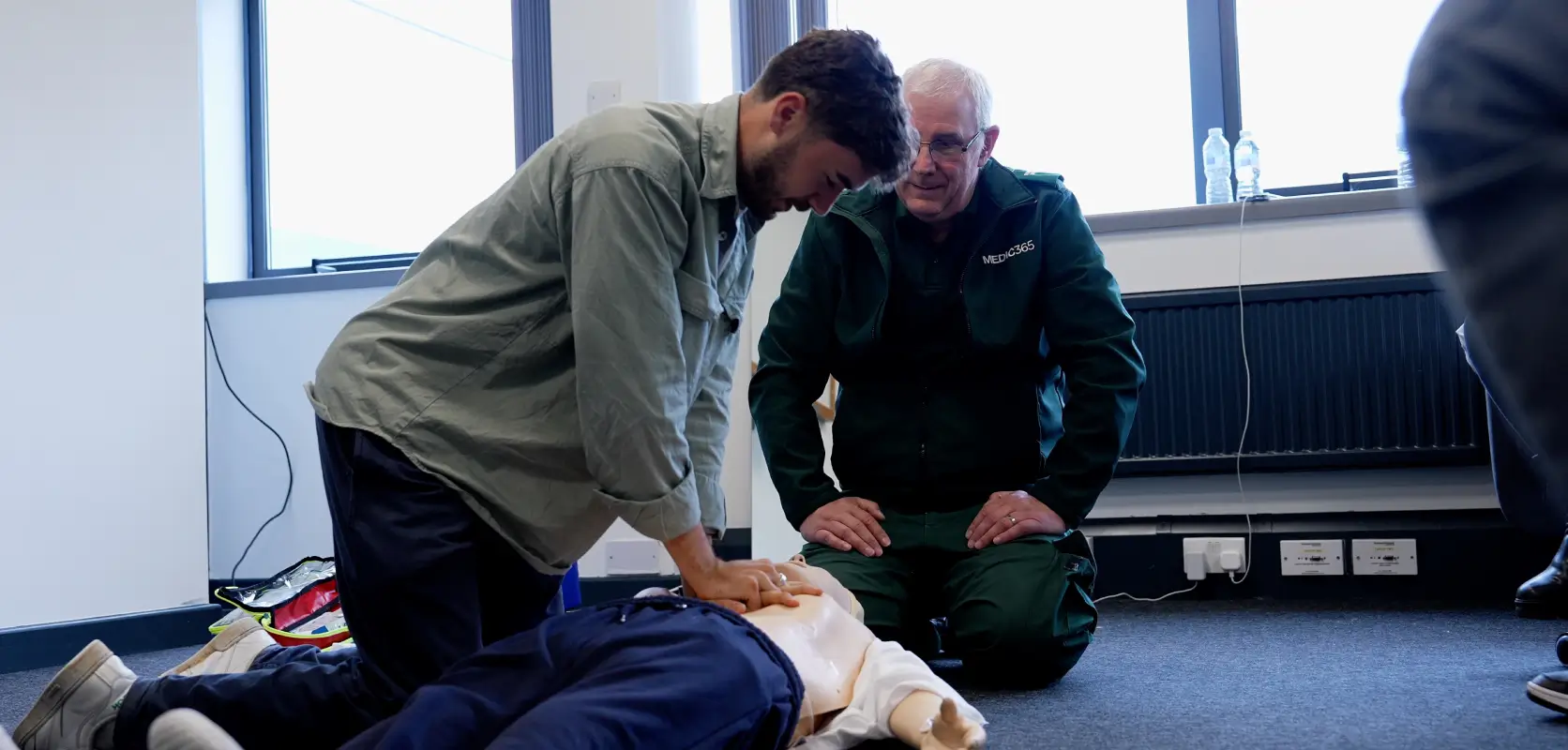
What Can First Aid Treat?
First aid can address a wide range of medical issues, providing essential care until more advanced assistance is available. Some common conditions that can be supported with first aid include:
- Minor cuts, scrapes, and burns: Cleaning and dressing the wound to prevent infection.
- Sprains and fractures: Immobilising the affected area to reduce pain and prevent further injury.
- Allergic reactions: Responding to someone suffering an allergic reaction and using an EpiPen.
- Choking: Using techniques like the Heimlich manoeuvre to clear airways.
- Cardiac arrests: Performing CPR and using a defibrillator to maintain blood flow and oxygen to the brain.
It’s also important to know what issues first aid cannot fully treat to ensure you don’t cause any additional harm to someone in need of medical assistance:
- Spinal injuries: Movement should be minimised, and those wanting help should typically wait for a diagnosis from a medical professional. You can support their head and neck in the position they are found until professional help arrives.
- Internal injuries: Things like internal bleeding and organ failure cannot be treated with first aid. Additionally, in diabetic emergencies, insulin or IV fluids may be required.
- Serious head injuries or concussions: Monitoring symptoms is possible, but brain scans and medical intervention are required.
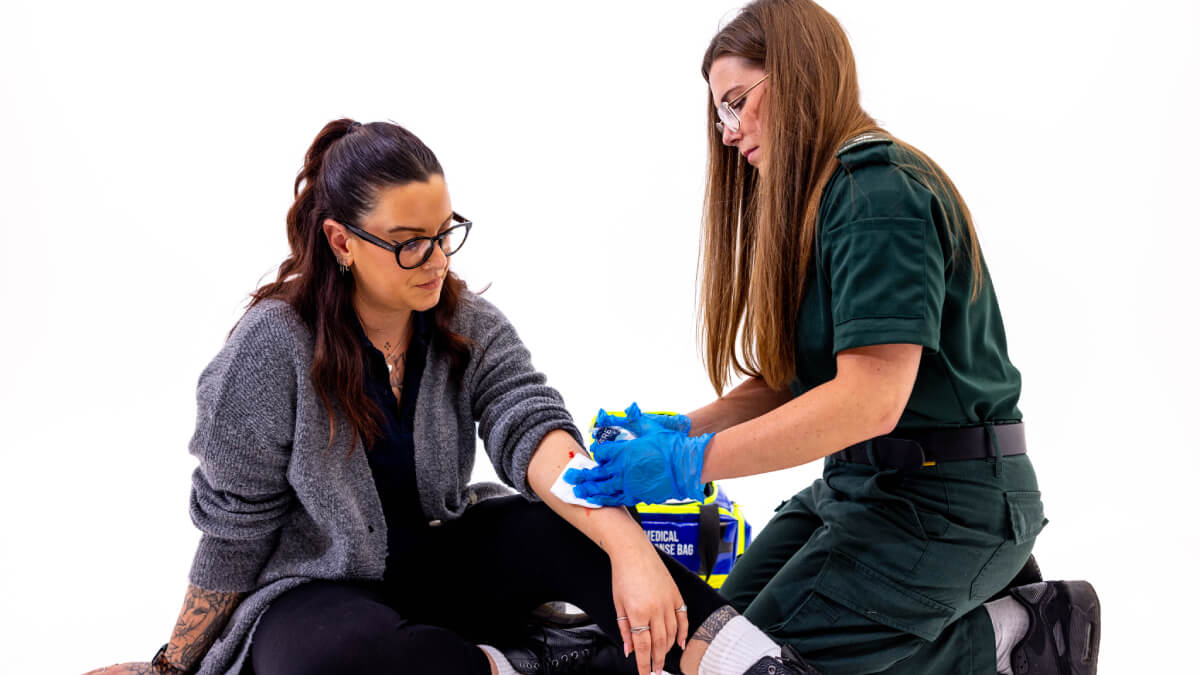
How To Get A First Aid Certificate
The good news is that becoming first aid trained is straightforward and incredibly rewarding. To earn your certificate, you simply need to complete a registered first aid course offered by a certified training provider, like Medic 365. These courses are designed to suit people of all skill levels, making it easy for beginners to get started while also providing valuable refreshers for those with prior experience.
During the course, you’ll learn essential skills, such as CPR, wound care, and how to respond to emergencies, allowing you to handle real-life situations with confidence. It’s a practical investment in safety that can make a real difference in your community or workplace.
If you’re looking for a way to learn first aid skills in an engaging way, booking our first aid course in Milton Keynes or any of the surrounding areas offers a balance between theory and hands-on training. Whether you’re looking for general first aid training, prehospital care training, or resuscitation, we offer a wide range of courses to suit your needs.
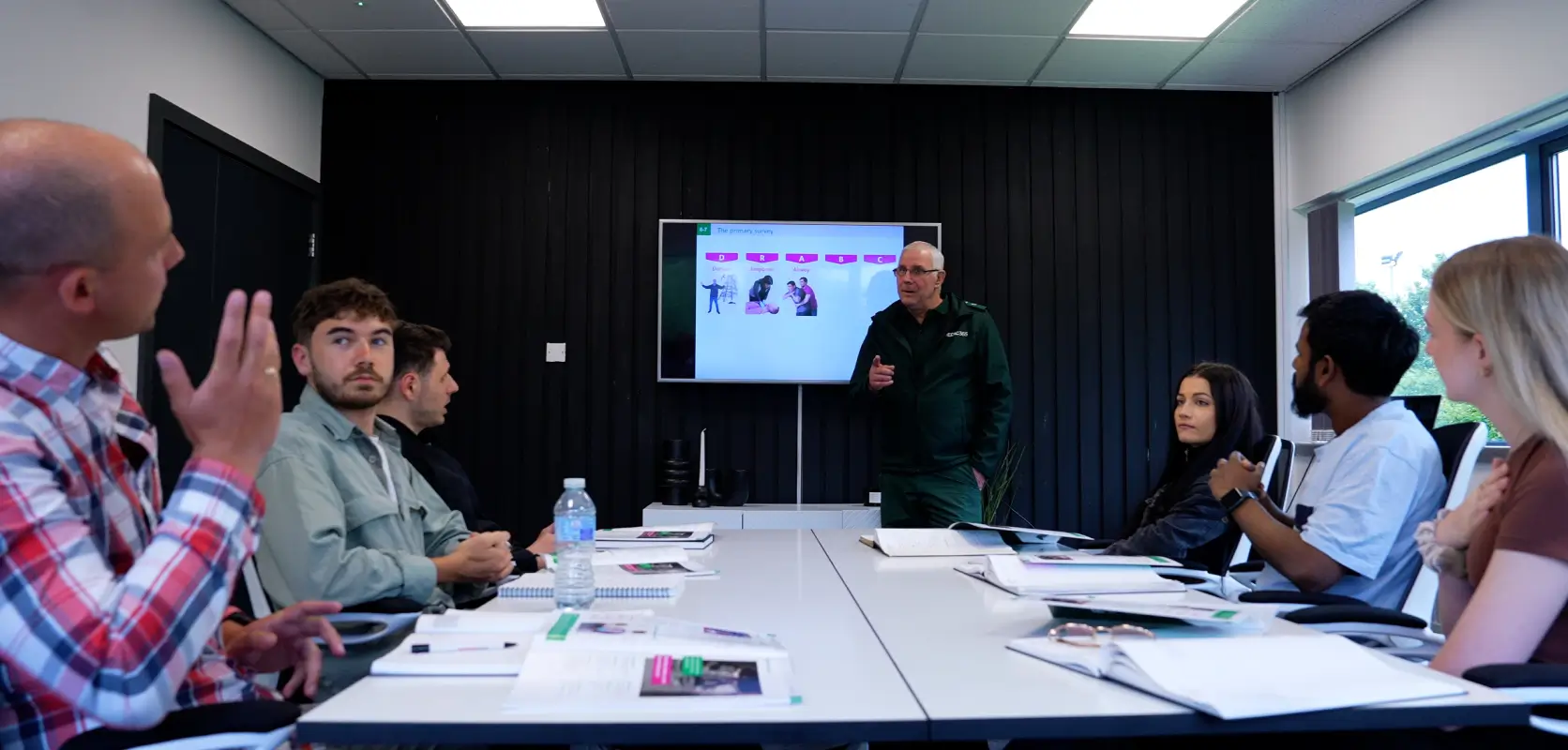
What Does First Aid Training Include?
Ever wondered what exactly you’ll learn in a first-aid course? At Medic 365, we ensure you receive comprehensive training that gives you the confidence to act quickly and effectively in emergencies.
Here’s what our courses typically cover:
- Basic skills: Roles and responsibilities of a first aider.
- Emergency life support: CPR, defibrillation, and recognising signs of shock.
- Assessing incidents: Identifying hazards and securing the scene.
- Recovery techniques: Placing someone in the recovery position.
- Treating injuries: Wounds, bleeding, burns, cuts, and grazes.
- Special scenarios: How to handle choking and seizures.
- Everyday incidents: Managing minor injuries like bruises or scalds.
Whether it’s understanding how to respond to choking or practising CPR with real equipment, you’ll leave feeling capable and prepared.
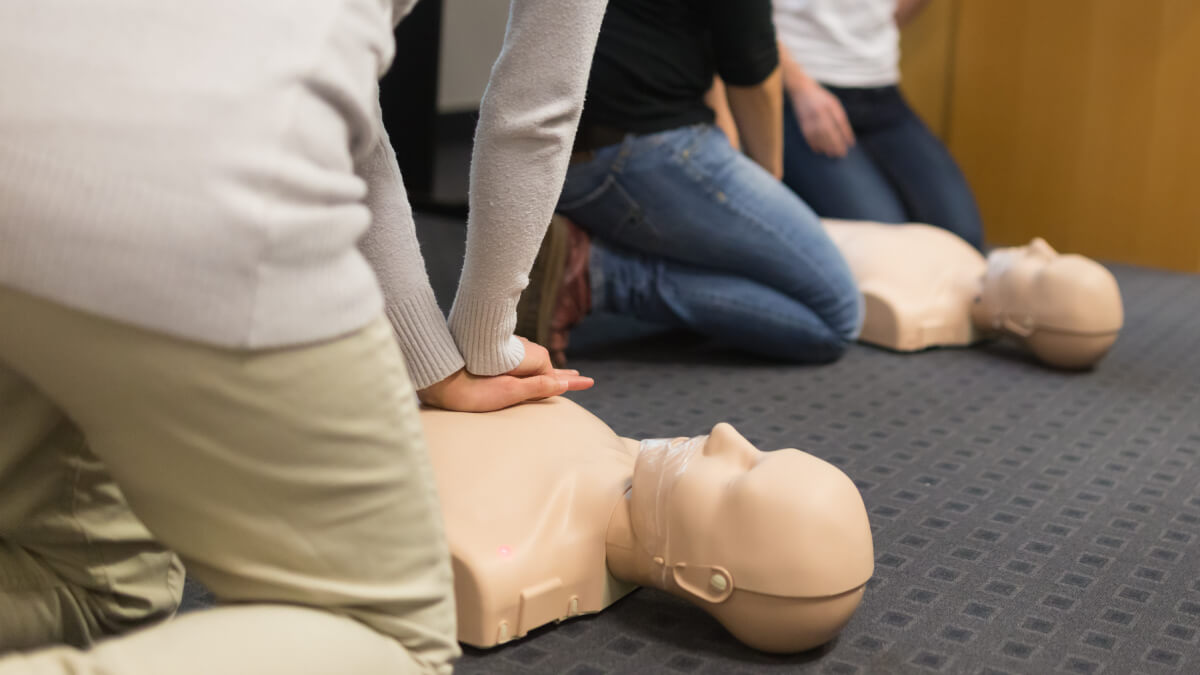
How Long Does First Aid Training Last?
Medic 365 offers flexible and convenient training options designed to fit into even the busiest of schedules, allowing you to develop your first-aid skills without disrupting your daily commitments. If you can’t find the time to travel to our HQ in Milton Keynes, we’re happy to conduct the course at your workplace whenever it’s most convenient for you. These are the first aid courses we offer:
- One-Day Courses (Emergency First Aid At Work): Perfect for covering the essentials, geared towards office and retail environments.
- Three-Day Courses (First Aid At Work): Offers more in-depth and detailed instruction, ideal for workplaces with higher risks.
By offering tailored options, we make it easy to find a course that fits both your time and learning needs.
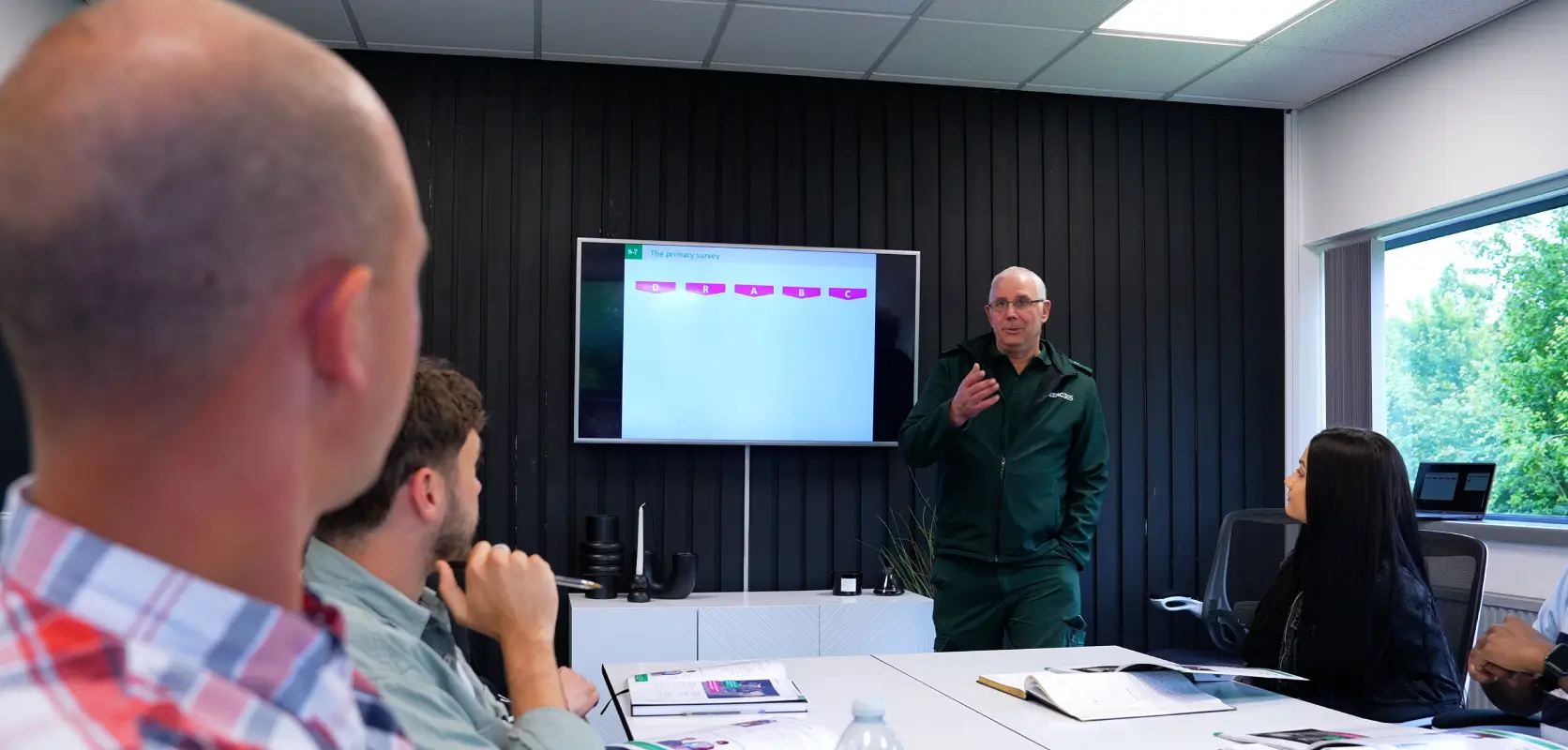
How Long Does A First Aid Certificate Last?
Once you’ve completed your course with Medic 365, your first aid certificate will be valid for three years. After that, you’ll need to refresh your skills with another course to stay up to date.
Renewing your certificate is simple. Just book a refresher course to ensure you’re prepared should you encounter a medical emergency. With training this straightforward, there’s really no excuse for letting your skills lapse.
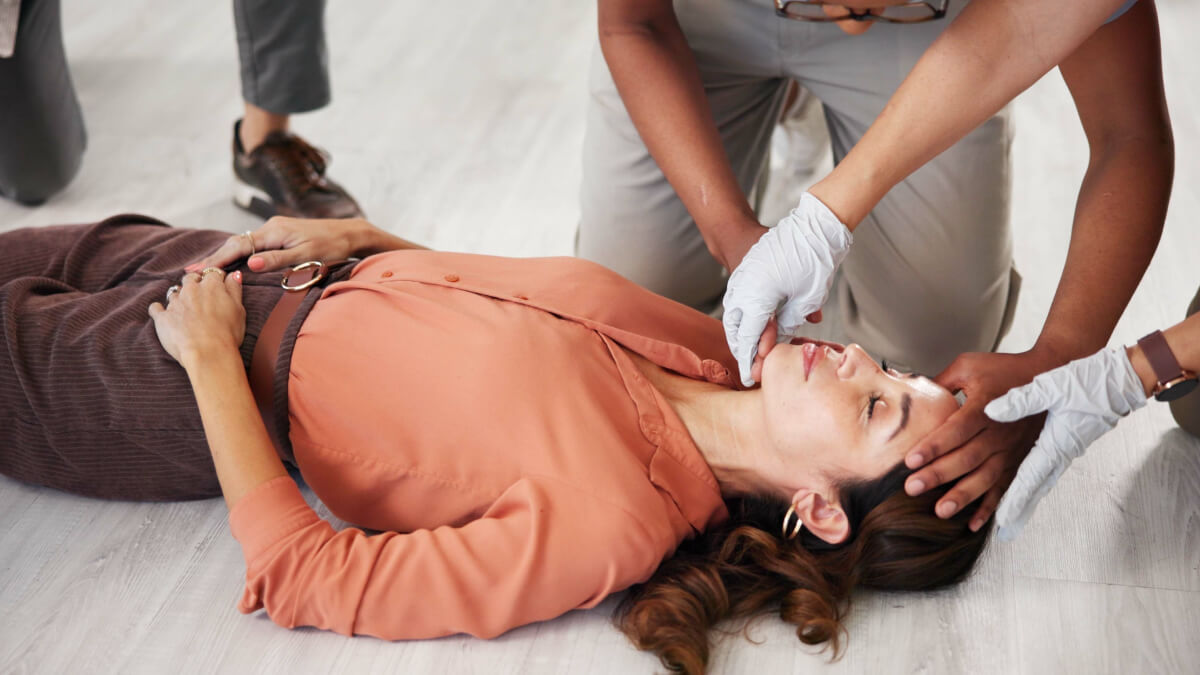
First Aid FAQs
Got questions about first aid? Don’t worry, you’re not alone! Here are some common questions we get asked and their answers to help you understand the basics of first aid:
Is First Aid Training A Legal Requirement For Businesses?
Yes, under the Health and Safety (First-Aid) Regulations 1981, businesses are required to provide adequate first-aid equipment, facilities, and trained personnel. The specifics depend on the size and nature of your workplace, but ensuring at least one team member is first-aid trained is often the bare minimum.
What’s The Difference Between An Appointed Person And A First Aider?
An appointed person is responsible for maintaining first aid kits and calling emergency services but doesn’t need formal training. A first aider, on the other hand, requires certified training to provide hands-on care in emergencies.
What Should Be In A First Aid Kit?
A well-stocked first aid kit should include all the essential items needed to address minor injuries and medical emergencies promptly and effectively:
- Sterile bandages and gauze
- Adhesive plasters of various sizes
- Antiseptic wipes
- Disposable gloves
- Scissors and tweezers
- A CPR face shield
- A first aid manual for quick guidance

Your Next Steps: Get First Aid Trained with Medic 365
First aid isn’t just a skill; it’s a responsibility that can truly change lives. Whether you want to be better prepared at home, at work, or in the community, Medic 365‘s first aid courses in Milton Keynes offer the perfect starting point. Take the first step today and get in touch to book your course.

